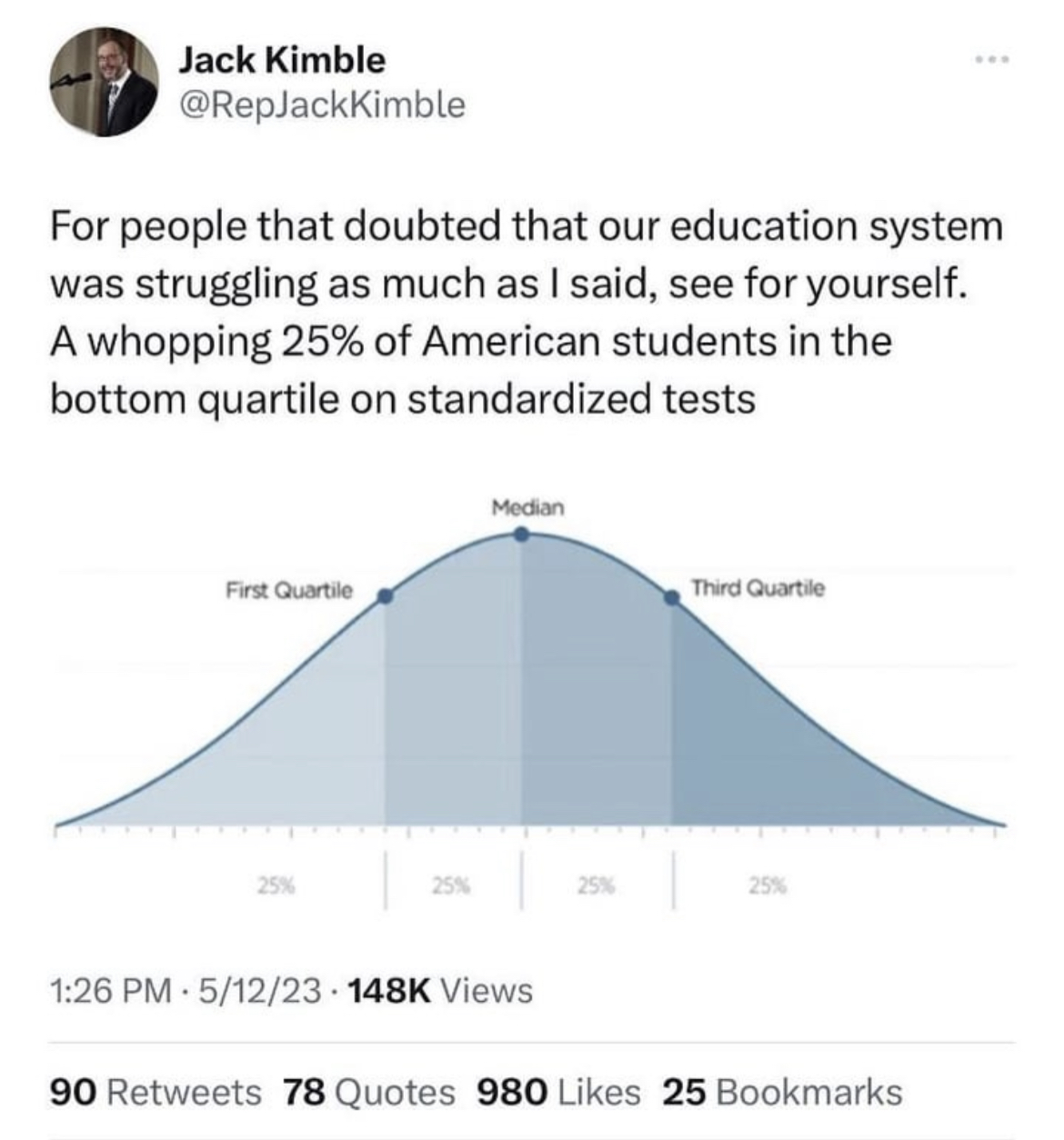this post was submitted on 21 Sep 2023
1288 points (97.8% liked)
Memes
47204 readers
2799 users here now
Rules:
- Be civil and nice.
- Try not to excessively repost, as a rule of thumb, wait at least 2 months to do it if you have to.
founded 5 years ago
MODERATORS
you are viewing a single comment's thread
view the rest of the comments
view the rest of the comments

At the end of the day, reducing intelligence down to one single number is already kind of questionable. What does it mean for someone to be 1 point more intelligent than another person?
It's also, there are several different axes that you could measure intelligence along, spatial intelligence and awareness, emotional intelligence and so on. Also intelligence is a sliding scale, there are definitely times of the day, week month and year when I am less able to solve problems and more likely to cause them and then you're into the social aspects, it's been demonstrated that people's ability to think straight is affected by how precarious their existence is and so on.
If you took a test as a child, it was probably WISC-V.
Which seems very reasonable to me. This was originally intended to be an aptitude test, not strictly to measure your intelligence.
It's the composite score, and especially the heavy emphasis on it as some innate unchangeable thing, that's the questionable part.
Absolutely, but it's still useful. Allegedly Alfred Binet did not approve of the eventual applications of the test he designed.
This is supposed to quantify intelligence but how are these criteria quantified? Seems like the same fundamental issue
I don't know, when I got tested it seemed like they were testing the right stuff.
I'm pretty sure it's a well-made test that provides fairly accurate results. Even if what they claim to be measuring in each category isn't reflected in the test, it is, at the very least measuring the abilities required to take the test and that exactly.
It seems pretty straightforward to see how good a kid is at solving a puzzle, right?